Brief explanations of the terms I use, with links to recommended episodes.
Abyt
 (“Ah-BEET”) Egyptian god associated with the praying mantis, the bee, and other similar winged insects. (Episode #46.)
(“Ah-BEET”) Egyptian god associated with the praying mantis, the bee, and other similar winged insects. (Episode #46.)
Anubis
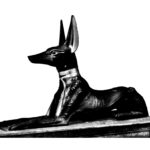 Egyptian god of last rites for the deceased, associated with jackals; son of Nephthys and Osiris or Set. (Episode #41.)
Egyptian god of last rites for the deceased, associated with jackals; son of Nephthys and Osiris or Set. (Episode #41.)
Artiodactyls
 Cloven-hoofed critters—antelope, goats, hippopotamuses, pigs, deer, etc.—many of which are sacred to Set. (Episode #6.)
Cloven-hoofed critters—antelope, goats, hippopotamuses, pigs, deer, etc.—many of which are sacred to Set. (Episode #6.)
Blessed Dead
 Dearly departed loved ones, empowered and kept alive by the gods in Duat. (Episodes #4, #9.)
Dearly departed loved ones, empowered and kept alive by the gods in Duat. (Episodes #4, #9.)
Chaos Serpent
 Apep
Apep
Deshret
 Egyptian word for desert; used here for the Desert of Set, His secret place in Duat “beyond” the Big Dipper. (Episode #9.)
Egyptian word for desert; used here for the Desert of Set, His secret place in Duat “beyond” the Big Dipper. (Episode #9.)
Dua
 Ancient Egyptian word that means “praise” or “adoration,” used in veneration of the gods. (Episode #39.)
Ancient Egyptian word that means “praise” or “adoration,” used in veneration of the gods. (Episode #39.)
Duat
 “Place Where the Sun is Born”; the “Other Side” beneath our reality, a nexus of myriad heavens and hells. (Episode #4.)
“Place Where the Sun is Born”; the “Other Side” beneath our reality, a nexus of myriad heavens and hells. (Episode #4.)
Elephantfish
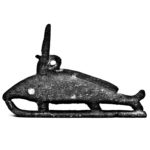 Fish of the Mormyridae family, sacred to Set; their long snouts resemble that of the Sha. (Episode #6.)
Fish of the Mormyridae family, sacred to Set; their long snouts resemble that of the Sha. (Episode #6.)
Execration
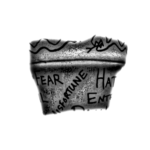 A magical procedure to ward off qliphoth, especially the Chaos Serpent. (Episode #31.)
A magical procedure to ward off qliphoth, especially the Chaos Serpent. (Episode #31.)
Friday the Thirteenth
 A good time to celebrate black cats, and for honoring Set and Osiris as brothers. (Episode #32.)
A good time to celebrate black cats, and for honoring Set and Osiris as brothers. (Episode #32.)
Hallowtide
 October 31–November 2; a harvest festival for honoring the Blessed Dead and execrating qliphoth before winter. (Episode #45.)
October 31–November 2; a harvest festival for honoring the Blessed Dead and execrating qliphoth before winter. (Episode #45.)
Heart
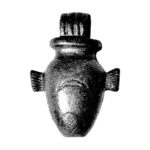 Identified with the Egyptian ib: a person’s mind, by which they are judged for their deeds and misdeeds after death. (Episode #58.)
Identified with the Egyptian ib: a person’s mind, by which they are judged for their deeds and misdeeds after death. (Episode #58.)
“Horned” Pentagram
 A five-pointed star in a circle, drawn with two points up; important to many Setians. (Episode #26.)
A five-pointed star in a circle, drawn with two points up; important to many Setians. (Episode #26.)
Horus
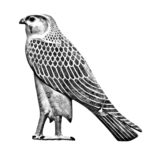 Egyptian god of day, rulership, and the spark of Ra in all people; the nephew or brother of Set. (Episode #19.)
Egyptian god of day, rulership, and the spark of Ra in all people; the nephew or brother of Set. (Episode #19.)
Ishtar
 Akkadian fertility goddess of the planet Venus; a wrathful warrior and lover of Set. (Episodes #21, #33, #34.)
Akkadian fertility goddess of the planet Venus; a wrathful warrior and lover of Set. (Episodes #21, #33, #34.)
Kemetic Polytheism
 The worship of one or more Netjeru in modern times. Also called Kemetism or Kemeticism. (Episode #62.)
The worship of one or more Netjeru in modern times. Also called Kemetism or Kemeticism. (Episode #62.)
Kheper
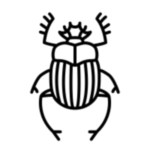 Egyptian word for a profound life- or world-changing transformation, represented as the Scarab of Ra. (Episode #18.)
Egyptian word for a profound life- or world-changing transformation, represented as the Scarab of Ra. (Episode #18.)
Khepera
 Ra as the rising sun, identified with the scarab, kheper, and the entry of the soul to a new “day” or state of being. (Episode #18.)
Ra as the rising sun, identified with the scarab, kheper, and the entry of the soul to a new “day” or state of being. (Episode #18.)
Kheperu
 “Divine transformations”; the plural form of kheper. (Episode #18.)
“Divine transformations”; the plural form of kheper. (Episode #18.)
Khepesh
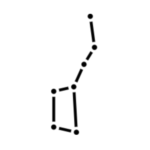 The Iron of Set; His Backbone, Testicles, Foreleg, Sickle-Sword, Scepter, or Chisel, linked with the Big Dipper. (Episode #9.)
The Iron of Set; His Backbone, Testicles, Foreleg, Sickle-Sword, Scepter, or Chisel, linked with the Big Dipper. (Episode #9.)
LV-426 Tradition
 My coven, a unique Setian fellowship; our name is an homage to Ridley Scott’s Alien (1979). (Episode #2.)
My coven, a unique Setian fellowship; our name is an homage to Ridley Scott’s Alien (1979). (Episode #2.)
Ma’at
 Egyptian principle of truth, justice, and compassion; helping others to help oneself, both here and in Duat. (Episode #19.)
Egyptian principle of truth, justice, and compassion; helping others to help oneself, both here and in Duat. (Episode #19.)
Magic
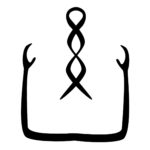 Defined here in terms of the Egyptian heka: use of words, art, and/or rituals to stir the spirit. (Episode #7.)
Defined here in terms of the Egyptian heka: use of words, art, and/or rituals to stir the spirit. (Episode #7.)
Name
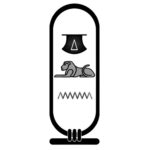 Identified with the Egyptian ren: a living, magical extension of the self that can live on after death. (Episode #58.)
Identified with the Egyptian ren: a living, magical extension of the self that can live on after death. (Episode #58.)
Nehebukau
 “He Who Harnesses Spirits”; snake god who assists us through our transformations in both life and the afterlife. (Episode #59.)
“He Who Harnesses Spirits”; snake god who assists us through our transformations in both life and the afterlife. (Episode #59.)
Nephthys
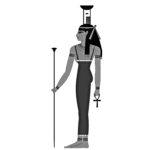 Egyptian “dark midwife” goddess who heals broken hearts and minds; sister of Set, mother of Anubis. (Episode #41.)
Egyptian “dark midwife” goddess who heals broken hearts and minds; sister of Set, mother of Anubis. (Episode #41.)
Netjer
 Ancient Egyptian word for “God” or “Higher Power,” used in the plural (Netjeru) for the Egyptian gods. (Episode #62.)
Ancient Egyptian word for “God” or “Higher Power,” used in the plural (Netjeru) for the Egyptian gods. (Episode #62.)
Nut
 (“NOOT”) Egyptian goddess of the sky; mother of Osiris, Isis, Set, Nephthys, and sometimes Horus. (Episode #19.)
(“NOOT”) Egyptian goddess of the sky; mother of Osiris, Isis, Set, Nephthys, and sometimes Horus. (Episode #19.)
Osiris
 Egyptian god of agriculture, civilization, and life after death; brother to Set and father or brother of Horus. (Episode #32.)
Egyptian god of agriculture, civilization, and life after death; brother to Set and father or brother of Horus. (Episode #32.)
Paganism
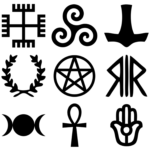 Contemporary Western faiths that often involve magic and/or the worship of pre-Christian deities. (Episode #28.)
Contemporary Western faiths that often involve magic and/or the worship of pre-Christian deities. (Episode #28.)
Pazuzu
 Assyro-Babylonian god of wind, storms, and drought who is a ferocious defender of women and little children; I believe He is allies with Set. (Episode #63.)
Assyro-Babylonian god of wind, storms, and drought who is a ferocious defender of women and little children; I believe He is allies with Set. (Episode #63.)
Polytheism
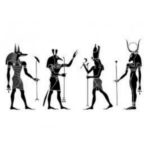 The belief in many gods; a component of many Pagan faiths. (Episode #28.)
The belief in many gods; a component of many Pagan faiths. (Episode #28.)
Qliphoth
 Soulless spirits that are hostile to nature and human beings; the singular form is qlipha. (Episode #13.)
Soulless spirits that are hostile to nature and human beings; the singular form is qlipha. (Episode #13.)
Ra
 Egyptian sun deity, Creator of nature; identified here as gender neutral (They or Them). (Episode #18.)
Egyptian sun deity, Creator of nature; identified here as gender neutral (They or Them). (Episode #18.)
Sabbat
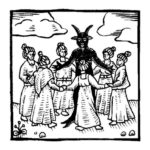 In LV-426, a meeting between one or more Setians and Set; usually observed on weekends. (Episode #32.)
In LV-426, a meeting between one or more Setians and Set; usually observed on weekends. (Episode #32.)
Satan
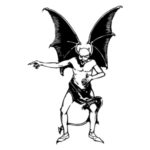 Christian personification of evil, often conflated with Pagan deities, especially Set. (Episodes #20, #21.)
Christian personification of evil, often conflated with Pagan deities, especially Set. (Episodes #20, #21.)
Satanic Panic
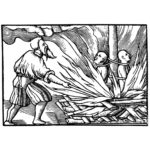 A literal witch hunt in which people are accused of organized murder and/or rape for Satan. (Episode #20.)
A literal witch hunt in which people are accused of organized murder and/or rape for Satan. (Episode #20.)
Set
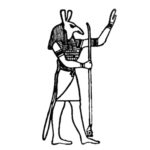 Egyptian god of night, otherness, and storms; a trickster and champion of autonomy and diversity. (Episode #1.)
Egyptian god of night, otherness, and storms; a trickster and champion of autonomy and diversity. (Episode #1.)
Setian
 A person who reveres and emulates Set; a mortal follower of the god. (Episode #1.)
A person who reveres and emulates Set; a mortal follower of the god. (Episode #1.)
Setianism
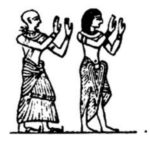 Being a Setian; experiencing profound reverence for Set and working to emulate Him. (See Episode #1.)
Being a Setian; experiencing profound reverence for Set and working to emulate Him. (See Episode #1.)
Sha
 The main symbol for Set; a creature that resembles a red dog with rabbit ears. (Episode #6.)
The main symbol for Set; a creature that resembles a red dog with rabbit ears. (Episode #6.)
Shadow
 Identified with the Egyptian shut or khaibit: a person’s essence, which exists and thrives in objects bearing their likeness. (Episode #58.)
Identified with the Egyptian shut or khaibit: a person’s essence, which exists and thrives in objects bearing their likeness. (Episode #58.)
Snake God
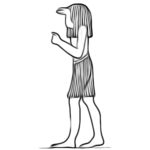 Used here in reference to Nehebukau; not to be confused with the Chaos Serpent, which refers to
Used here in reference to Nehebukau; not to be confused with the Chaos Serpent, which refers to Apep. (Episode #59.)
Soul
 Identified here with the Egyptian ba: a person’s innermost personality, the part of them that never changes. (Episode #58.)
Identified here with the Egyptian ba: a person’s innermost personality, the part of them that never changes. (Episode #58.)
Spirit
 Identified here with the Egyptian ka: a person’s astral body, which is also their life force and magical power. (Episode #58.)
Identified here with the Egyptian ka: a person’s astral body, which is also their life force and magical power. (Episode #58.)
“Standing” Pentagram
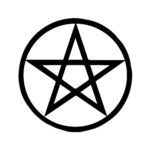 A five-pointed star in a circle, drawn with one point up; more often used by other Pagans. (Episode #26.)
A five-pointed star in a circle, drawn with one point up; more often used by other Pagans. (Episode #26.)
Sutekh
 A variation of Set’s name that I often use when addressing Him in prayer. (Episode #12.)
A variation of Set’s name that I often use when addressing Him in prayer. (Episode #12.)
Taweret
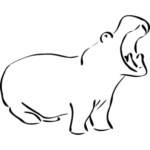 Egyptian hippo goddess of the constellation Draco; lover of Set, defender of women and children. (Episodes #38, #40.)
Egyptian hippo goddess of the constellation Draco; lover of Set, defender of women and children. (Episodes #38, #40.)
Typhon
 “Whirlwind”; a name given to Set by the Greeks, and used here strictly in reference to Him. (Episode #11.)
“Whirlwind”; a name given to Set by the Greeks, and used here strictly in reference to Him. (Episode #11.)
Typhonian
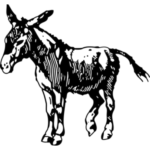 A synonym for Setian inherited from the Greeks; one of Set’s people or creatures. (Episode #11.)
A synonym for Setian inherited from the Greeks; one of Set’s people or creatures. (Episode #11.)
Typhonianism
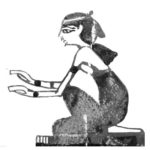 A synonym for Setianism, inherited from the Greeks; the religious veneration and emulation of Set. (Episode #11.)
A synonym for Setianism, inherited from the Greeks; the religious veneration and emulation of Set. (Episode #11.)
Walpurgisnacht
 April 30–May 1; German spring fertility festival, a time for execrating qliphoth after winter. (Episode #32.)
April 30–May 1; German spring fertility festival, a time for execrating qliphoth after winter. (Episode #32.)
Weighing of the Heart
 Judgment of the soul in Duat after death; if we pass, we join the Blessed Dead. (Episode #4.)
Judgment of the soul in Duat after death; if we pass, we join the Blessed Dead. (Episode #4.)

